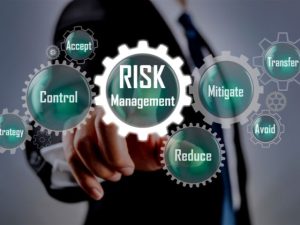Key Elements of Risk Management in Healthcare
Risk management is important and necessary in all organizations, but it seems to be even more important among healthcare organizations to promote safety and high reliability.
The goal of risk management is to realize and develop a better understanding of the risk and to evaluate the consequences and the likelihood that these consequences may occur with patient safety, persons involved in providing healthcare, and the organization itself.
By conducting risk assessments, an organization can distinguish minor acceptable risks from the major unacceptable risks and to provide data in a way that assists with the evaluation and treatment of risks.
The risk management process is a clearly defined method of understanding what risks and opportunities are present, how they affect an organization, and how to respond to them.
The four essential steps are as follows:
Identify the Risk
Identify all the events that negatively (create a risk) or positively (create an opportunity) that affect the objectives of a specific project
Assess the Risk
There are two types of risk and opportunity assessments: qualitative and quantitative. Qualitative analyzes the probability of the event and its impact on the organization and quantitative analyzes the financial impact or benefit of the event. Both are necessary and important for a complete and comprehensive evaluation of risks and opportunities.
Treat the Risk
For an organization to treat risks, strategies for doing the risks must be first identified by developing a treatment plan. The objective or goal of the plan is to reduce the probability of the occurrence of the risk and/or to reduce the impact of the risk.
Monitor and Report the Risk
Risks and opportunities and their treatment plans need to be monitored and reported based on the critical nature of the risk and/or opportunity. The development of a monitoring and reporting system will ensure that appropriate responses and actions are being implemented.










